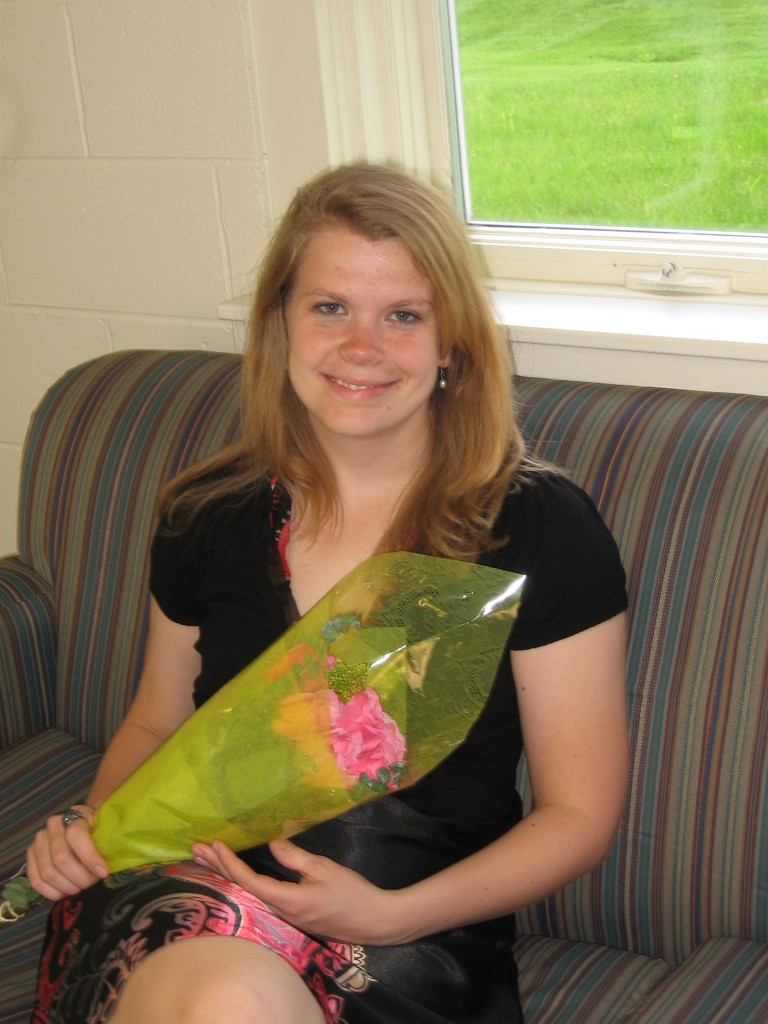
This summer I was placed at University Hospitals, splitting my time between the Center for Child Health and Policy at Rainbow and the newly formed Office of Sustainability working on projects focused on the multiple ways food and the hospital intersect. When friends and family hear about my position I usually get two main reactions. The first is confusion over what sustainability in a hospital means and the second is confusion over how my position relates to my degree in botany. The botany question requires a shorter answer (working on projects surrounding food is just studying the use of plants by people), but sustainability is a bit more complex to explain.
Sustainability in business used to mean that your company was going to profitable enough to be around for the next 100 years. Today sustainability in business means following a triple bottom line of people, planet, and profit to ensure that your company, the community the company serves, and resources the company uses will be around for the next 100 years. Sustainability in a hospital means looking at all aspects of operations, which far exceed just doctors and nurses caring for patients, and seeing ways in which the hospital can support the community, reduce its environmental impact, and save money at the same time.
A project I worked on that illustrates sustainability in action is a food donation project at University Hospitals Case Medical Center. If the hospital cafeteria has leftover entrees and side dishes after a meal service, the traditional choice has been to throw it in the garbage, but the sustainable choice is donating this food to a local organization. I worked with UH’s food service provider, Sodexo, to match them with a local organization that could accept the premade food. Donating the food helps to strengthen the community as it provides a valuable resource to those who are under a strong financial strain to provide for their families. By diverting the food from the trash it reduces the environmental impact of the hospital by keeping the food out of a landfill. This practice saves money by lessening the volume of trash generated by the kitchen which leads to savings through less frequent trash pick ups.
At such a large institution as UH the little sustainability measures really do add up. For example, by powering off your computer at night you can save approximately $90 per computer per year.Lets say that 5,000 of UH’s approximately 15,690 employees have computers they can power down by the end of the year UH could have saved $450,000, enough to pay the salary of seven registered nurses. Sustainable choices don’t just mean saving the environment, they save jobs.
Making these sustainable choices second nature to employees requires a culture shift within the organization. With over 15,000 employees spread out between 150 locations this shift takes time, but it is something that the dedicated staff in the sustainability office and other employees of UH are committed to making a reality.
Come check out our efforts at our table at Ingenuity Fest September 16-18th.
Each week we use this space to give each of our interns the chance to reflect on their internship experiences. Joanne is a senior at Ohio Wesleyan University. Placement: University Hospitals Health System




Are you familiar with the United Nations’ Agenda 21? Under the guise of “good for all”it actually forces changes that intend to limit human habitat areas and movement within those areas, take control of lands and natural resources and prohibit human access except for workers needed to extract the oils and natural gasses for the world government to distribute as they see fit. In other words, it is all about power and control for a few. Your support of the movement for “sustainability”changes will surely end American freedom as we know it. Ohio is a prime target of these groups because of our access to the Great Lakes and our waterways.
I ask that you educate yourself on the UN Agenda 21 as it applies to Ohio and the United States. I think you will find that, even though it is disguised as protecting the environment, there is a darker plan behind the over regulating of America.